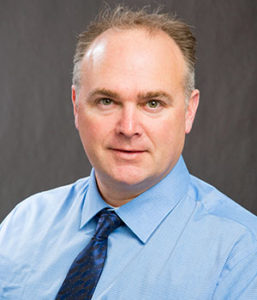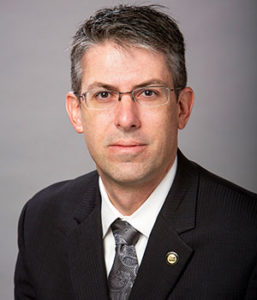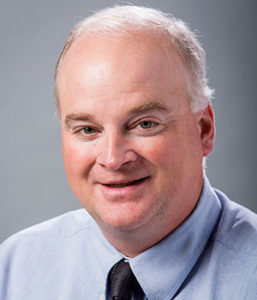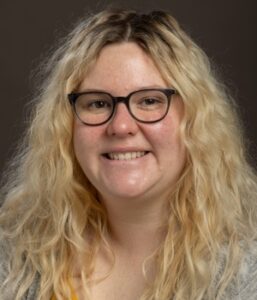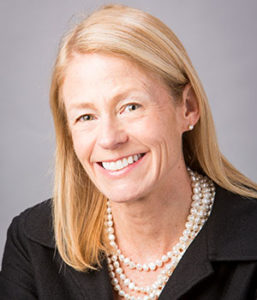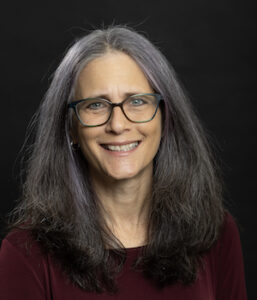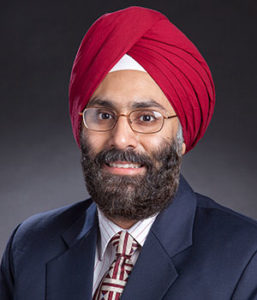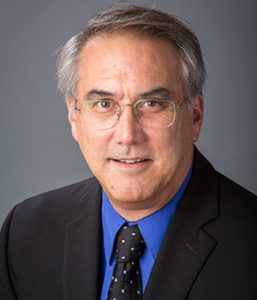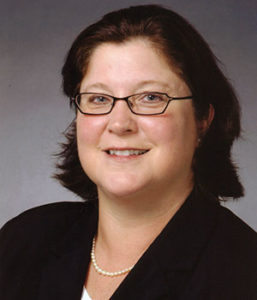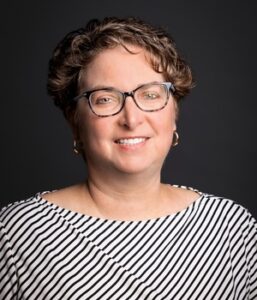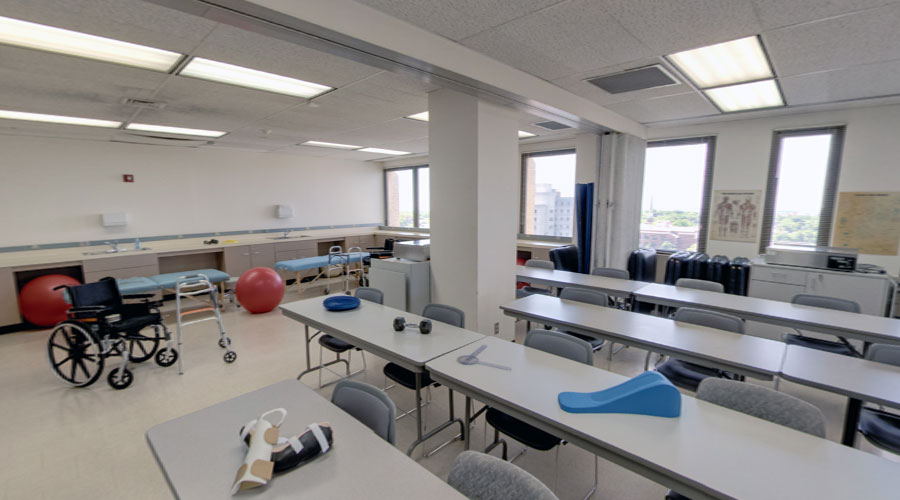Occupational Science & Technology BS
You’ve decided you enjoy working with persons with disabilities either through direct care or administrative service. Not quite sure which is the best career path? Explore an occupational science degree.
The University of Wisconsin-Milwaukee (UWM) BS Occupational Science & Technology Program allows you the chance to pursue a variety of career options. A flexible educational path combined with a blend of elective courses will prepare you to work in different health and human service settings.
You will also be particularly well prepared for graduate study in Occupational Therapy and other disability related disciplines. Acceptance and completion of the BS Occupational Science & Technology does not guarantee admission into the MS Occupational Therapy Program.
Program Type
Major
Program Format
On Campus
Occupational Science & Technology combines…
“various components of health, disability and occupation that contribute to full participation in life”
With the knowledge and skills you gain in the occupational science and technology degree program you will have unlimited possibilities. Activity therapist/director, assistive technology professional, behavioral health technician, design and accessibility consultant, risk control specialist, design and accessibility consultant are just some of the many careers you could explore.
Graduates of the BS Occupational Science and Technology often pursue advanced degrees in occupational therapy or other rehabilitation professions, the social sciences and some areas of science, technology, biomedical engineering and math (STEM) disciplines.
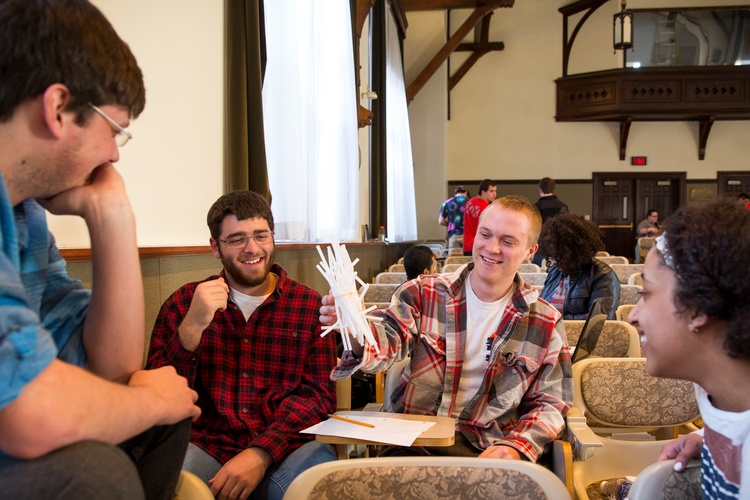
- The occupational science degree program lets you take advantage of a flexible educational path with a combination of face-to-face, blended and online formats.
- You can choose from tracks in the areas of assistive technology, disability and occupation, and therapeutic recreation. Our Assistive Technology & Universal Access Laboratory and courses feature state-of-the-art equipment that is unmatched in the state.
- Quality advising is available to assist you in your advanced education or career path of choice.
- Pre-Occupational Therapy designation allows you specialized advising and access to the UWM Early Admission Program for the MSOT program.
- You will learn from faculty who are among the strongest in the nation in terms of their leadership, professional credentials and research productivity.
- Unique to the occupational science degree program are several research-oriented courses in the area of scientific inquiry, biostatistics, measurement and evidence informed practice, giving you a strong foundation for graduate education or involvement in research.
Employment Outlook
There are several different types of entry level positions in disability and health care available to graduates with an occupational science and technology degree. Completion of the undergraduate program in Occupational Science & Technology does not meet requirements for employment as an Occupational Therapy Assistant. Some examples of employment include Community Service Managers and Recreational Therapists.
Earnings
- Community Service Managers: $69,600
- Recreational Therapists: $47,710
Expected Growth
Employment of community service managers is projected to grow 15 percent from 2020 to 2030, faster than the average for all occupations.
Much of the job growth is the result of an aging population. An increase in the number of older adults will result in a need for more social services, such as adult daycare and meal delivery, creating demand for social and community service managers. Employment of social and community service managers(in disability and human service agencies) is expected to increase the most in industries serving the elderly, such as services for the elderly and persons with disabilities.
In addition, employment growth is projected as people continue to seek treatment for their addictions, and as illegal drug offenders are increasingly sent to treatment programs rather than to jail. As a result, managers who direct treatment programs will be needed. Workers usually need experience in order to become a social and community service manager, and it is essential for those with a bachelor’s degree. Candidates can get this experience by working in direct care positions while completing their undergraduate degree.
Employment of recreational therapists is projected to grow 10 percent from 2020 to 2030, about as fast as the average for all occupations.
As the U.S. population ages, more people will need recreational therapists to help treat age-related injuries and illnesses. Older people are more likely to experience a stroke, Alzheimer’s disease, and mobility-related injuries that may benefit from recreational therapy. Therapists will also be needed to help healthy seniors remain social and active in their communities. Recreational therapy services can help the aging population to maintain their independence later in life. For example, recreational therapists can help older people prevent falls by teaching them modified yoga exercises that improve balance and strength.
In addition, the number of people with chronic conditions, such as diabetes and obesity, is growing. Recreational therapists will be needed to help patients maintain their mobility, to teach patients about managing their conditions, and to help patients adjust recreational activities to accommodate any physical limitations. Therapists will be needed also to plan and lead programs designed to maintain overall wellness through participation in activities such as camps, day trips, and sports.
Recreational therapists will increasingly be utilized in helping veterans manage service-related conditions such as post-traumatic stress disorder (PTSD) or injuries such as the loss of a limb. Recreational therapists can lead activities that help veterans to reintegrate into their communities and help them to adjust to any physical, social, or cognitive limitations.
Sources: Bureau of Labor Statistics, U.S. Department of Labor, Occupational Outlook Handbook, Recreational Therapists ; Bureau of Labor Statistics, U.S. Department of Labor, Occupational Outlook Handbook, Social and Community Service Managers.
Successful Alumni
The School of Rehabilitation Sciences & Technology has many successful alumni. These alumni have taken their Athletic Training, Communication Sciences & Disorders, Occupational Therapy, Sciences & Technology and Physical Therapy educations and have excelled in their careers.
Visit our Alumni page and be inspired by where a health sciences degree can take you.
Related Programs
Students interested in the BS Occupational Science & Technology Program are encouraged to contact the program advisor, Aggie Northrup at 414-229-2758 or witowski@uwm.edu. Students with bachelor’s degrees in other areas are welcome and encouraged to contact the College of Health Sciences Office of Student Affairs for a credit evaluation.
You will automatically be admitted to the occupational science and technology degree program after completion of 57 credits. Within those 57 credits you must have a B- or better in:
- BIO SCI 202
- OCCTHPY 151
- OCCTHPY 201
- PSYCH 101
- THERREC 202
At the time of admission to the major, you must declare at least one track that you will complete.
Upon admission to the occupational science and technology degree program, you must maintain a 2.75 cumulative GPA. Failure to attain a semester GPA of 2.75 or higher will result in you being placed on academic probation for one semester. A second semester GPA below 2.75 will result in your dismissal from the program. Program required courses can be repeated. Any given course may be repeated only one time. It is important for you to understand that we want you to succeed. Meet with your Advisor each semester to identify areas of concern PRIOR to academic probation or dismissal from the program.
General Education Requirements (GERs)
Learn more about UWM’s General Education Requirements.
| Course | GER | Credits |
|---|---|---|
| English: Must earn “C” or better in English 102 Prerequisite: placement test | 3 | |
| Math: Must earn “C” or better in Math 105 Prerequisite: placement test | 3 | |
| Foreign Language Satisfied with 2 years of a single language in high school | 0 | |
| Natural Science Satisfied below by Foundations courses | NS | 0 |
| Social Science Satisfied below by Foundations courses | SS | 0 |
| Cultural Diversity Satisfied below by OS core courses | CD | 0 |
| Arts Select course from the approved GER Arts list | A | 3 |
| Humanities Select course from the approved GER Humanities list THERREC 103 Introduction to Leisure recommended | HU | 3 |
| Total Credits: | 12 |
Foundations Courses
| Course | GER | Credits |
|---|---|---|
| BIO SCI 202: Anatomy & Physiology I MS OT Prerequisite | 4 | |
| BIO SCI 203: Anatomy & Physiology II MS OT Prerequisite | NS+ | 4 |
| COMMUN 103: Public Speaking | HU | 3 |
| ENGLISH 205: Business Writing OR ENGLISH 207: Health Science Writing | OWCB | 3 |
| HCA 203: Human Life Cycle MS OT Prerequisite | SS | 3 |
| KIN 270: Statistics in the Health Professions: Theory and Practice MS OT Prerequisite | QLB | 3 |
| OCCTHPY 151: Foundations of Scientific Inquiry for Occupational Studies | 3 | |
| PHYSICS 120: General Physics MS OT Prerequisite | NS | 4 |
| PHYSICS 121: General Physics Lab | NS+ | 1 |
| PSYCH 101: Introduction to Psychology MS OT Prerequisite | SS | 3 |
| PSYCH 412: Psychopathology | 3 | |
| Total credits: | 34 |
Core Courses
Maximum of 1 course may be repeated.
| Course | Offered | Credits |
|---|---|---|
| OCCTHPY 201: Introduction to Occupational Science & Technology | F | 3 |
| THERREC 202: Disability: Society and the Person | F | 3 |
| OCCTHPY 220: Gadgets & Gizmos: Introduction to Assistive Technology | S | 3 |
| OCCTHPY/THERREC 245: Client Diversity: Interdisciplinary Perspective | S | 3 |
| OCCTHPY 260: Enhancing Health through Activity | S | 3 |
| OCCTHPY 320: Introduction to Ergonomics for the Health Professions | S | 3 |
| OCCTHPY 340 (540): Evidence for Practice I: Applications of Biostatistics | F | 3 |
| OCCTHPY 341 (542): Evidence for Practice II: Appraising Evidence | F/S | 3 |
| OCCTHPY 401: Overview of Medical Conditions | S | 3 |
| OCCTHPY 530: Contemporary Issues and Professional Preparation in Occupational Studies | S | 3 |
| Total Credits: | 30 |
Track Requirements
Disability and Occupation Track
The Disability and Occupation Track is aimed towards students that want to become Occupational Therapists or seek employment in other direct care positions working with persons living with a disability.
Disability and Occupation Track 4 Year Plan (PDF)
| Course | Credits |
|---|---|
| THERREC 202: Disability: Society and the Person | 3 |
| OCCTHPY 250: Concepts of Time and Occupation | 3 |
| THERREC 303: Inclusive and Disability Programs in the Community | 3 |
| OCCTHPY 315: Group Process in Rehabilitation | 3 |
| OCCTHPY 401: Overview of Medical Conditions | 3 |
| OCCTHPY 505: Work and Disability | 3 |
| OCCTHPY 625: Design and Disability | 3 |
| Total Credits | 21 |
Applications of Assistive Technology Track
The Applications of Assistive Technology Track is aimed towards students who are interested in applying technology and/or designing environments and products that enhance the capabilities of people.
Applications of Assistive Technology Track 4 Year Plan (PDF)
| Course | Credits |
|---|---|
| OCCTHPY 220: Gizmos & Gadgets: Introduction to Assistive Technology | 3 |
| OCCTHPY 250: Concepts of Time and Occupation | 3 |
| OCCTHPY 420: Principles of Human Factors and Usability | 3 |
| OCCTHPY 521: Essentials of Assistive and Rehabilitation Technology | 3 |
| OCCTHPY 593: Introduction to Biomedical and Rehabilitation Instrumentation | 3 |
| OCCTHPY 595: Vision I: Introduction to Low Vision and Visual Impairment | 3 |
| OCCTHPY 625: Design and Disability | 3 |
| Total Credits | 21 |
Therapeutic Recreation Track
The Therapeutic Recreation Track is aimed towards students who are interested in the field of Therapeutic Recreation.
Therapeutic Recreation Track 4 Year Plan (PDF)
| Course | Credits |
|---|---|
| THERREC 103: Introduction to Leisure | 3 |
| THERREC 203: Therapeutic Recreation Process | 3 |
| THERREC 300: Therapeutic Recreation Assessment and Documentation | 4 |
| THERREC 308: Therapeutic Recreation in Physical Rehabilitation and Behavioral Health | 4 |
| THERREC 310: Facilitation Techniques in Therapeutic Recreation | 4 |
| THERREC 400: Issues and Trends in Therapeutic Recreation | 3 |
| Total Credits | 21 |
Human Factors, Injury, and Performance (HFIP)
This new track is targeted to students interested in helping individuals achieve peak personal and/or occupational health and performance through the interaction of human factors and human function.
This HFIP track explores occupational health and performance from an interdisciplinary (i.e., physical, psychosocial, technical) perspective and an applied team science framework.
The HFIP track also fills a gap in knowledge and skills that employers have identified as important to the future innovation and advancement of employers. For example, recent job posts employers are seeking individuals prepared to integrate the occupational sciences with health and performance to enhance workplace safety, reduce worker injury, and improve workability.
Students are encouraged to add the Pre-Occupational Therapy or other pre-professional designation to their program if interested in pursuing a graduate degree in rehabilitation sciences.
The Program’s academic advisor may assist with adding such designations as well as creating a degree plan that incorporates pre-requisite courses for other professional graduate programs such as Athletic Training or Physical Therapy.
Recommended minors/certificates to pair with the HFIP Track: Disability and Occupation Track, Kinesiology Minor, Business Minor, Digital Fabrication, and more.
Possible occupations: Human Factors professionals, Ergonomist, Insurance Claims Specialist or Loss Control Specialist, Usability Practitioner, Safety Scientist, and other titles.
| Code | Title | Credits |
|---|---|---|
| OCCTHPY 250 | Concepts of Time and Occupation | 3 |
| OCCTHPY 320 | Introduction to Ergonomics for Healthcare Professionals | 3 |
| Select one of the following: | ||
| BMS 232 or | Introduction to Nutrition | 3 |
| NUTR 235 or | Introduction to Nutrition for the Health Professions | |
| KIN 230/NUTR230 | Health Aspects of Exercise and Nutrition | |
| KIN 350 | Psychological Aspects of Sport and Exercise | 3 |
| OCCTHPY 420 | Principles of Human Factors and Usability | 3 |
| OCCTHPY 522 | Health, Performance, & Injury Monitoring in Organizations | 3 |
| OCCTHPY 592 | Innovative Solutions in Human Factors and Performance | 3 |
| Total Credits | 21 |
Free Electives
The number of free electives required varies (23-29 credits) depending on the track that you follow. You must take a minimum of 9 credits at the 400 level or higher. We encourage you to pursue a minor or certificate program with your free electives.
Recommended Minors/Certificates
- Anthropology Minor
- Autism Spectrum Disorders Certificate
- Business Minor
- Childhood and Adolescence Studies Certificate
- Communication Minor
- Community Engagement Certificate
- Global Health Certificate
- Health Care Administration Minor
- Healthy Aging Certificate
- Kinesiology Minor
- Nutritional Sciences Minor
- Psychology Minor
- Sociology Minor
- Spanish for Health Professionals Certificate
- Study of Complementary and Integrative Health Approaches Certificate
To schedule an advising appointment, call 414-229-2758 or visit Northwest Quadrant Building B, Room 6425.
When should I meet with my advisor?
You are encouraged to meet with your advisor at least once per semester to ensure timely progress to graduation.
- Enrolling for spring semester?
Schedule an appointment with your advisor in October or November. - Enrolling for fall semester?
Schedule an appointment with your advisor in March or April.
You are also welcome to schedule an appointment with your advisor at any time to discuss academic challenges, career opportunities or any other questions.
How can my advisor help me?
The College of Health Sciences boasts professional academic advisors who understand the challenges of balancing academics, work, family and the social aspects of college life. Advisors partner with you to:
- Explore your academic and career interests
- Plan the sequence of your courses
- Prepare for course enrollment
- Access tutoring and other academic support
- Identify opportunities for campus involvement
- Connect you to campus resources
- Plan for graduation
- Professor, Athletic Training, Physical Therapy
- ebersole@uwm.edu
- 414-229-6717
- Pavilion 364
- Clinical Assistant Professor, Programs in Occupational Therapy Science, Technology & Rehabilitation
- tnbass@uwm.edu
- 414-251-9250
- Enderis Hall 985
- Head of School, School of Rehabilitation Sciences & Technology
- Associate Dean for Academic Affairs
- Professor, Programs in Occupational Therapy Science, Technology & Rehabilitation
- kap@uwm.edu
- 414-229-5292
- Enderis Hall 819
- Clinical Instructor, Occupational Therapy Science,Technology & Rehabilitation
- kohl@uwm.edu
- 414-251-9261
- Enderis Hall 9th Floor
- Academic Advisor, Programs in Occupational Therapy, Sciences and Technology
- mlkougl@uwm.edu
- 414-227-5047
- Cunningham Hall 135
- Professor, Physical Therapy
- Program Coordinator, Certified Mental Performance Consultant Graduate Certificate
- bbmeyer@uwm.edu
- 414-251-6393
- Pavilion 369
- Clinical Assistant Professor, Programs in Occupational Therapy Science, Technology & Rehabilitation
- Coordinator, ATAD Certificate
- silverm2@uwm.edu
- 414-251-5882
- Enderis Hall 973
- Associate Professor, Programs in Occupational Therapy Science, Technology & Rehabilitation
- sindhu@uwm.edu
- 414-251-7858
- Enderis Hall 929
- Professor, Programs in Occupational Therapy Science, Technology & Rehabilitation
- Director, Occupational Therapy Program
- Coordinator, Graduate Program
- Director, Research Design & Disability Center
- smithro@uwm.edu
- 414-229-5625
- Enderis Hall 975
- Assistant Clinical Professor, Programs in Occupational Therapy, Sciences and Technology
- solaru@uwm.edu
- Enderis Hall
- Clinical Associate Professor, Programs in Occupational Therapy Science, Technology & Rehabilitation
- Program Director, Occupational Science and Technology
- Coordinator, Therapeutic Recreation Certificate
- pthomas@uwm.edu
- 414-229-2507
- Enderis Hall 935
- Clinical Associate Professor, Programs in Occupational Therapy Science, Technology & Rehabilitation
- washburd@uwm.edu
- 414-229-3592
- Enderis Hall 961

